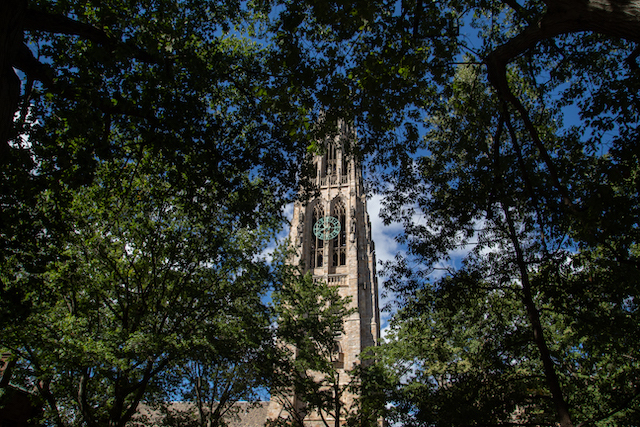Sophomores participate in “Myth of Miscommunication” workshop
After pandemic upended first-year orientation, Class of 2024 receives communication and consent training

Zoe Berg, Photo Editor
This week, the Communication and Consent Educator program launched its “Myth of Miscommunication” in-person programming for third-semester students. While students usually participate in the workshop during first-year orientation, some are taking part in the training a year late due to the COVID-19 pandemic.
The workshop curriculum focuses on the relationship between communication and sexual assault, and seeks to “debun[k] the “myth that sexual assault can occur as a result of confusion or misunderstanding.” The workshop also focuses on the relations between alcohol and other substances and sexual assault. The curriculum was written by the CCE office, which is directed by Assistant Dean of Student Affairs Janay Garrett, and the student affairs fellows.
“The hope [of the training] is that students will gain a better understanding that sexual assault is not caused by miscommunication, but rather by disrespect and disregard,” CCE Elliot Sawyer-Kaplan ’23 told the News.
The CCE program, which employs a number of students in each residential college, runs workshops and trainings with the goal of creating a healthier sexual climate on campus. The program leaders are undergraduates across class years and residential colleges.
Due to the cancellation of many first-year orientation activities in 2020, members of the class of 2024 are now taking the consent workshop for the first time, after more than a year of living on campus.
Garrett did not respond to multiple requests for comment on the impact of the delay.
The CCE website indicates that the program’s curriculum is rooted in research in both psychology and linguistics, and includes scenario-based discussions. During the “Myth of Miscommunication” workshop, students are asked to use an invitation to get frozen yogurt to demonstrate different forms of enthusiastic consent, deferral and refusal, as well as verbal and nonverbal cues. The workshop then discusses how these patterns of interaction are applicable to everyday situations, including sexual situations.
Even though many of the students taking part in the workshop have already been on campus for one term or more, Sawyer-Kaplan thinks their participation is nothing short of “essential.”
“There are a lot of misconceptions that come out of high school,” Sawyer-Kaplan said, “and it’s important that we debunk these myths.”
The workshop seeks to facilitate difficult but necessary conversations about how to strive for “the ideal positive sexual encounter,” Sawyer-Kaplan said. Additionally, because students are so busy with meetings and workshops during “Camp Yale” — Yale’s orientation programming for first-year students — Kaplan hopes the “Myth of Miscommunication” workshop will provide an opportunity for sophomores to engage more deeply with the material and conversations.
Some students who have previously engaged with topics regarding consent were impressed with how the workshops were run. Josephine Cureton ’24 is a Community Health Educator who helped lead the health and sexuality workshops for first-years. Despite being familiar with the content, Cureton says she thinks that the CCE workshops were a “really great deep dive into consent and the gray areas, since [the CHE] curriculum doesn’t really cover it.”
But one student had a more mixed experience with the workshop.
Evan Strittmatter ’24, said that, although the idea of workshops regarding consent is important for on-campus life, this particular session could have been better organized.
“The session was poorly executed, as they clogged it with unnecessary information and messy activities trying to involve the participants,” Strittmatter said.
But Sawyer-Kaplan said that while these can be “difficult conversations,” this makes them even more important, especially as members of the class of 2024 begin to spend more time on campus.
“If someone comes out of these workshops with a few more tools and skills then we have done our job, and then it’s up to them to do theirs,” Sawyer-Kaplan said.
The University currently employs 41 CCEs.








